- Table of contents
- Overview
- MVP: Mark I
- Mark IB: Mark I Rollout
- Mark II
- Mark III
Overview¶
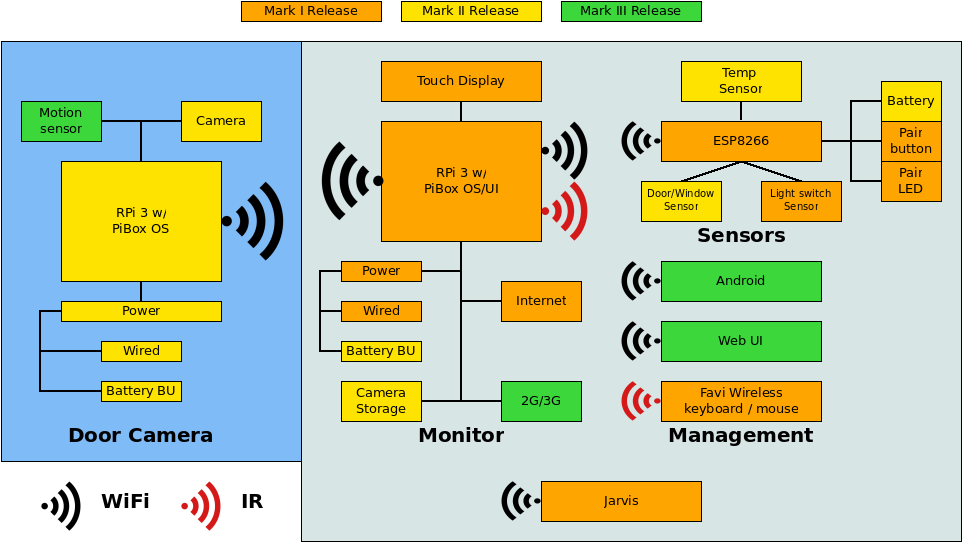
MVP: Mark I¶
Components¶
MVP will include a monitor (RPi 3) as a server node that supports inbound voice commands from Jarvis that are redirected to an ESP8266 controlled light switch.
Monitor¶
- RPI 3 w/PiBox OS + UI
- Touch Display
- Power source (AC and Battery backup)
- Internet connection (AP + client, single dongle)
- FAVI wireless keyboard/mouse (IR)
Sensors¶
- ESP8266 light power on/off
- Pair Button
- Reset Button
Jarvis¶
- Voice commands to text to piboxd
- Voice responses
Communications Protocols¶
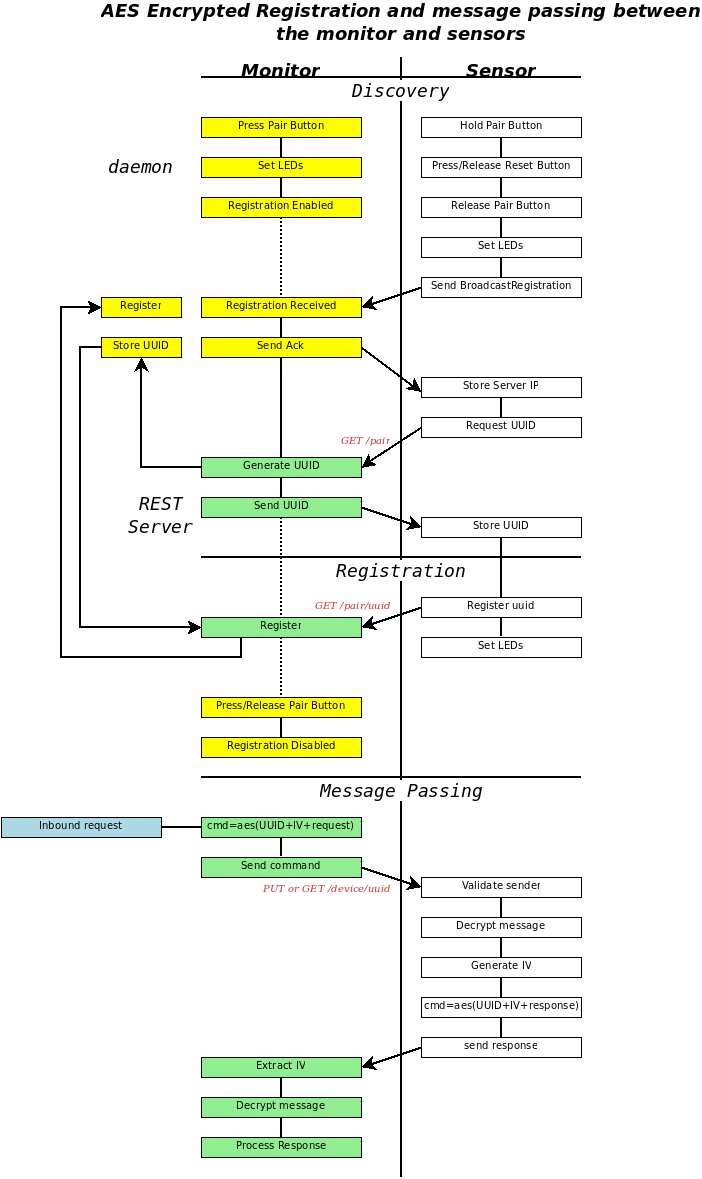
Jarvis Processing¶
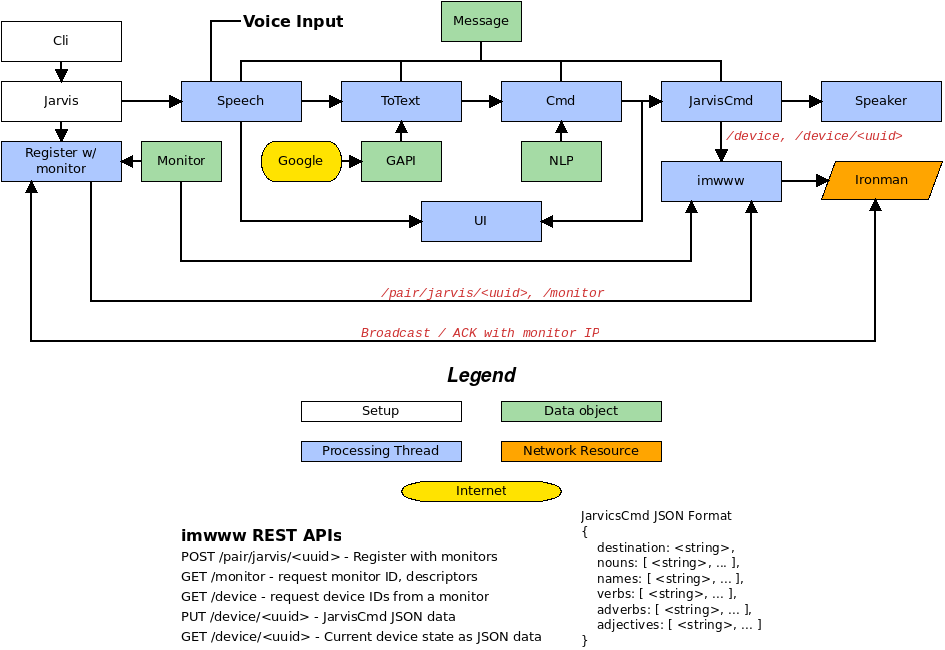
Mark IB: Mark I Rollout¶
This phase of development takes the prototypes of the Mark I release and puts them into service so they can actually be used on a day to day basis. The goal is to begin to actually use the system so design and implementation flaws can be identified and scheduled for updates. This requires generating prototype PCBs for IoT devices that are sufficient for day to day use.
Components¶
Light Switch¶
This is the hardware controller for a wall light switch. It includes the following components.
- Mains conversion (110v to 5V/3.3V)
- Enclosure prototype - just enough to mount it and allow it to function.
- Prototype sensor PCB
- Prototype power PCB
Mark II¶
Components¶
The Mark II release adds temperature and sensor monitoring to the light switch and adds a door/window sensor that can monitor open/closed states. Support for the on-board RPi 3 wifi module will be added to remove the dongle, assuming the on-board wifi supports dual mode operation. Finally, onboard storage will be added to the monitor as a data store for sensor data.
Monitor¶
- Add door camera based on existing usb camera support
- Data stored to Monitor storage
- RPi 3 on-board wifi
Sensors¶
- ESP8266 temp sensor + door/window sensor
- Battery power
Camera¶
- RPi 3
- Pibox Camera
- Remote viewing
Door Alarm Design¶
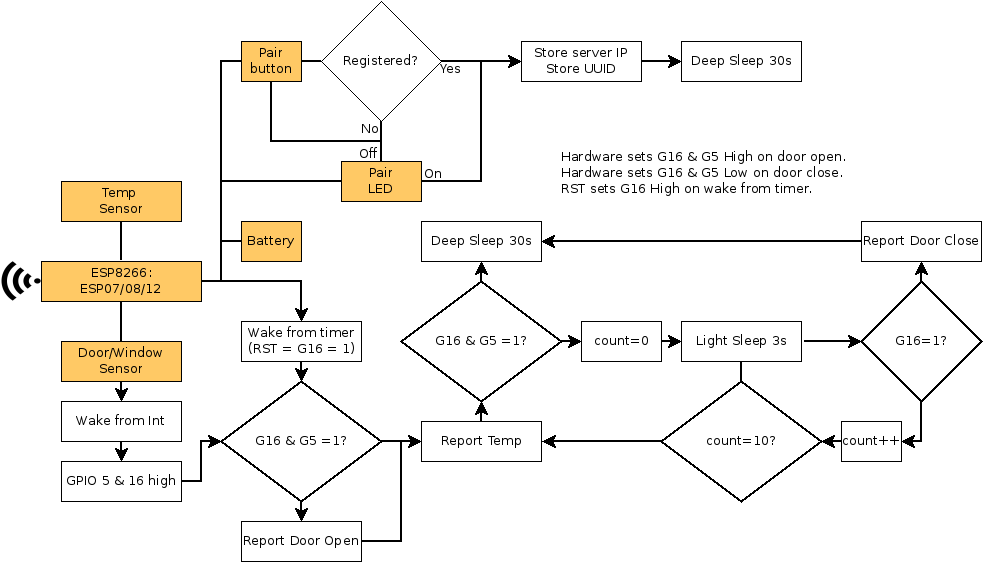
Monitor UI¶
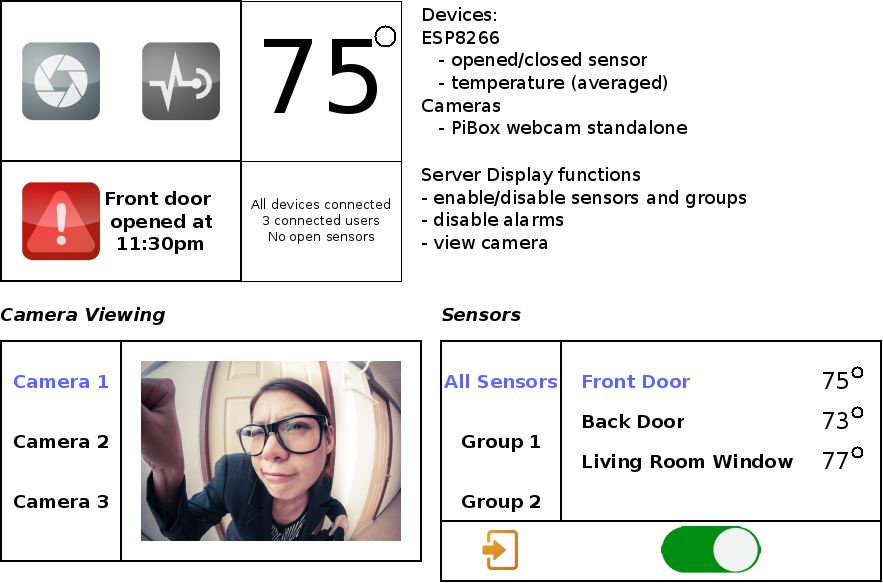
Mark III¶
The Mark III release will add 2G/3G support so that data can be made available when internet connections have been lost. This includes SMS messaging capabilities. This change also implies that a mobile interface will be included. Finally, a motion sensor will be added to the camera module.
Components¶
Monitor¶
- 2G/3G (when Internet is out)
- Web UI
- Android UI (Wifi only, w/ssh tunnel feature)
Camera¶
- Motion Sensor
Android UI¶
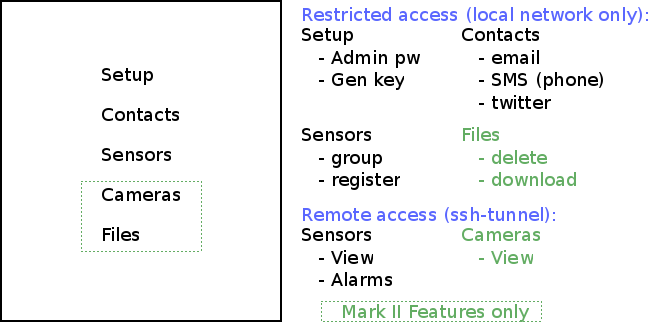
Updated by Hammel about 7 years ago · 12 revisions